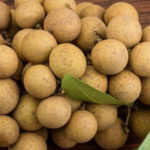Many people have the habit of storing all kinds of food, whether cooked or fresh, in the refrigerator, believing that they can be consumed at any time. However, few are aware of the safe food storage duration in the fridge. Let’s find out right now.
1 How to Store Vegetables in the Fridge
There is no need to wash vegetables before placing them in the fridge. Washing increases moisture, leading to discoloration and nutrient loss. Instead, cut and peel off old and rotten parts. Then, categorize the vegetables and store them in the chiller.
Common vegetables and their storage duration in the chiller:
– Asparagus, cabbage: Store for 2–3 days.
– Mushrooms (place in a paper bag): Store for 3 days.
– Lettuce: Store for 10 days.
– Cucumber, bell peppers: Store for 1 week.
– Ginger: Store for 1 month.
– Celery, cabbage, coriander: Store for 2 weeks.
– Carrots: Store for 3 weeks.
Note that the following root vegetables do not require refrigeration as they stay fresh at room temperature: potatoes (10 days), onions (1 month), garlic (2 months), pumpkin (3 months).
 How to Store Vegetables in the Fridge
How to Store Vegetables in the Fridge
Further Reference: Always Fresh and Safe
2 How to Store Fruits in the Fridge
Fruits should be stored in the chiller to prolong their freshness.
Do not wash fruits before refrigeration as it removes their natural protective layer, causing them to spoil faster. Instead, cut and peel off damaged parts, and only wash before consumption.
Storage duration of some common fruits:
– Avocado: Store in the chiller for 3 days.
– Papaya, banana, strawberry: Store in the chiller for 4 – 5 days.
– Mango: Store in the chiller for 4 days.
– Pear, papaya: Store in the chiller for 1 week.
– Grapes: Store in the chiller for 1 – 2 weeks.
– Oranges, tangerines, lemons, grapefruit: Store in the chiller for 2 weeks.
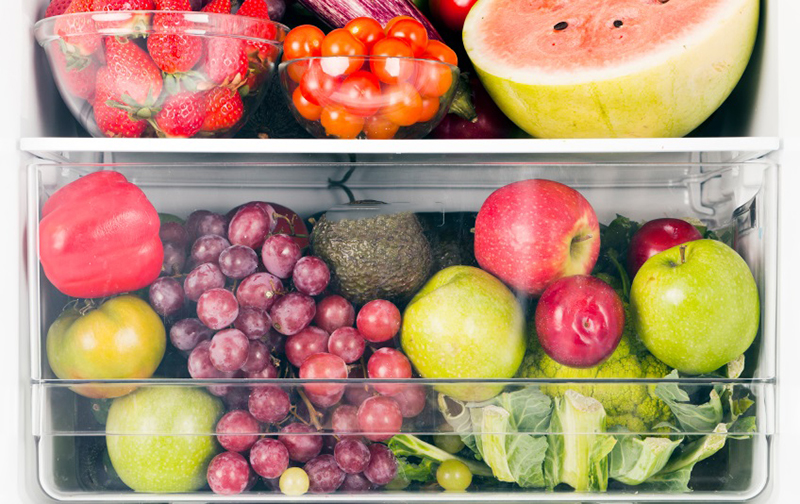
Further Reference: The Right Way to Store Fruits
3 How to Store Meat in the Fridge
Pork
Pork should be refrigerated within the first 2 hours after purchase.
Rinse fresh meat thoroughly to remove dirt. Cut into slices or chunks suitable for a single cooking session for easier defrosting. Then, place the meat in a plastic bag and put it in the fridge.
Avoid freezing large portions of pork in the freezer. Each time you need to use it, you have to defrost the entire chunk, and then refreeze the leftovers, resulting in nutrient loss.
Conditions for storing fresh pork:
– Store in the freezer at a temperature of -17 to -18°C for 4–12 months.
– Store in the chiller at 1 to 3°C for 3 days (remember to rinse and marinate with salt).
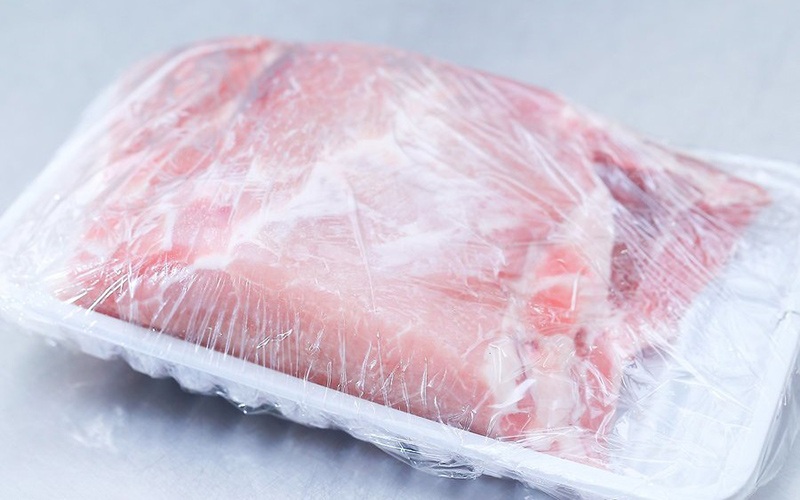
Beef
Unlike pork, there is no need to wash beef before refrigeration. If you buy pre-packaged beef, simply place it in a plastic bag and store it in the chiller. As beef contains a lot of water, be careful not to let the liquid spill and cause sanitation issues.
Conditions for storing fresh beef:
– Store in the freezer at a temperature of -17 to -18°C for 4–12 months.
– Store in the chiller at a temperature of 1 to 3°C for 3 days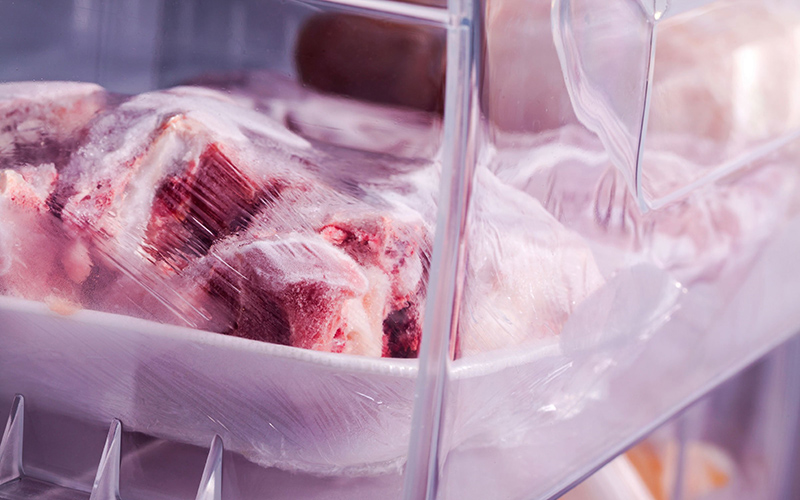
Chicken
Do not wash chicken before refrigeration. Simply place the meat in a plastic bag and freeze it. Note that a whole chicken will stay fresh for longer. As chicken has a distinct smell, make sure to wrap it tightly.
Conditions for storing fresh chicken:
– Store in the freezer at a temperature of -17 to -18°C for 1 year.
– Store in the chiller at 1 to 3°C for 3 days.
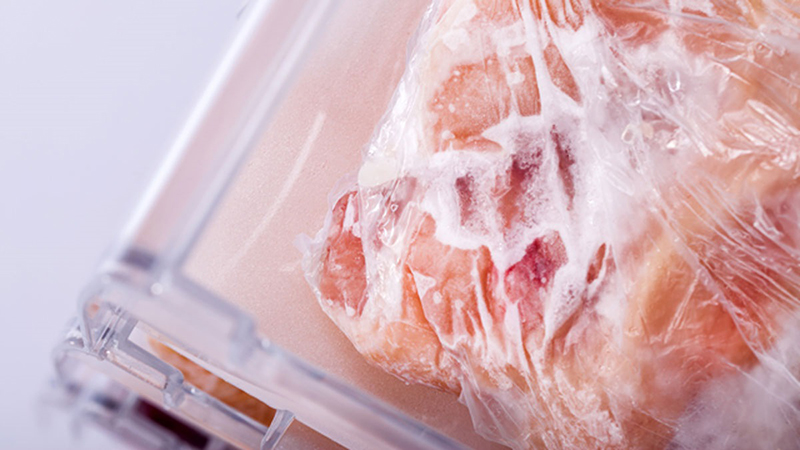
4 How to Store Fresh Fish in the Fridge
Fish has a strong odor and should be washed thoroughly, patted dry, and tightly wrapped before refrigeration.
If you buy pre-packaged fish and do not plan to consume it immediately, place it in a plastic bag and put it directly in the fridge. To maintain freshness after defrosting, rub the fish with salt before refrigeration.
Conditions for storing fresh fish:
– Store in the freezer at a temperature of -12°C for 2 weeks.
– Store in the chiller at a temperature of -1 to 1°C for 5–6 days.
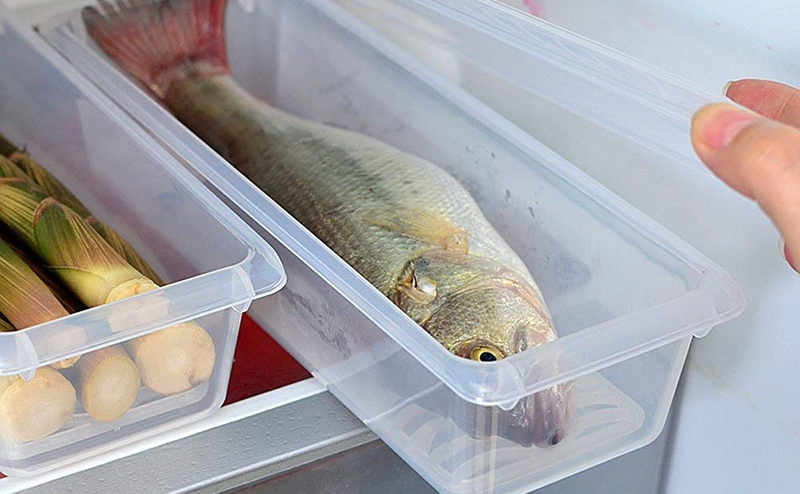
5 How to Store Eggs in the Fridge
Every refrigerator is equipped with an egg tray. Utilize these trays and place your eggs in the chiller.
Do not wash eggs before refrigeration as it accelerates their deterioration. If the eggshell is dirty, wrap the egg with food wrap.
The safe storage condition for eggs is at a temperature of 1 to 3°C for 3 weeks.
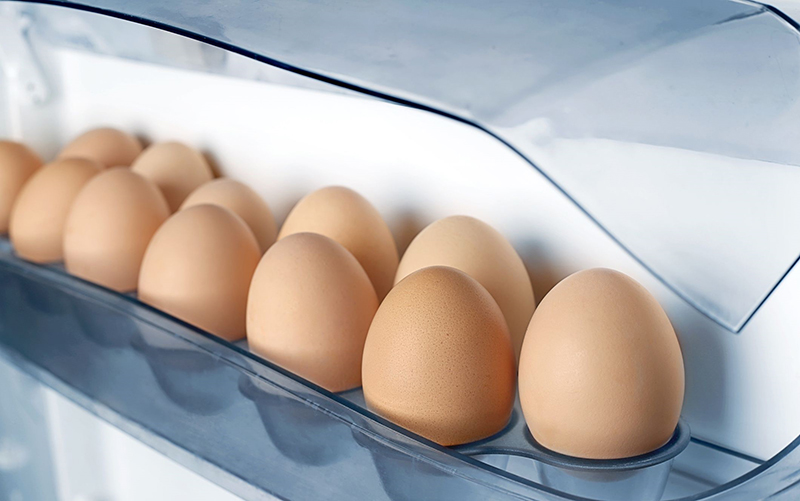
6 How to Store Cooked Food in the Fridge
For cooked food, let it cool down before placing it in the fridge. Putting hot food in the fridge causes a rapid increase in moisture, creating an environment for bacterial growth. Refrigerate cooked food 2 hours after cooking.
You can store food in glass or ceramic containers. Use food wrap to tightly seal the containers, or transfer the food to plastic boxes and store them in the chiller.
For health reasons, only store cooked food for 5–6 hours. Do not keep cooked food overnight as bacteria can grow and cause health issues, leading to serious illnesses such as cancer and digestive problems.
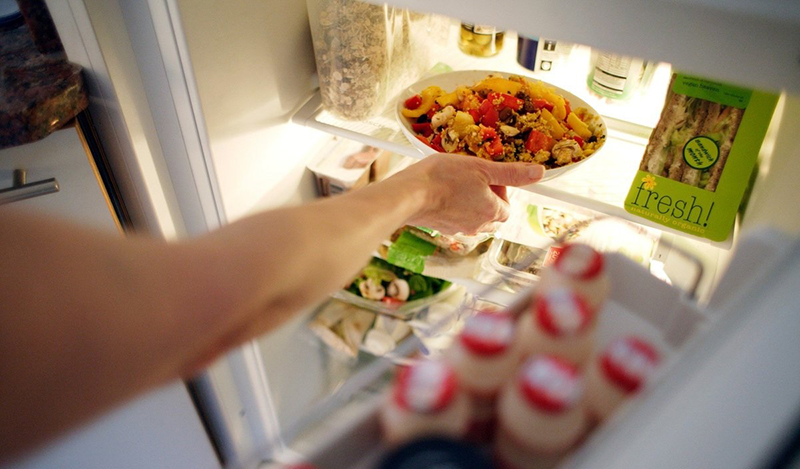
7 How to Store Baby Food in the Fridge
Baby food in the fridge must be stored in separate containers or baby food storage trays with tight-fitting lids.
Food stored in the chiller (1–3°C) must be consumed within 1–3 days. Food stored in the freezer (-17°C and below) can be kept for 3 months.
Specifically, for milk and dairy products, place them near the cold air vent of the fridge, which is the coldest part of the chiller, and they can be stored for 2–3 days.
Note that after 2–3 days, if the milk is not finished, discard it as it may have soured and deteriorated, and consuming it may cause stomachaches.
Allocate a separate space in the fridge for baby food. Storing baby food with raw meat, fish, unwashed vegetables, or cooked food for adults can cause bacterial contamination and make your baby sick.
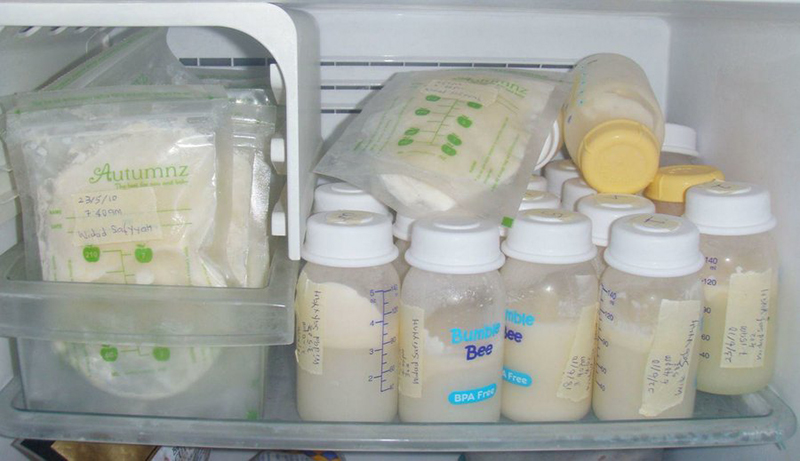
The above are some tips on how to store food in the fridge to maintain their freshness and prolong their shelf life. Apply these tips right away to ensure the health and well-being of your family.
Uncovering 10 Astonishing Methods to Neutralize Refrigerator Odors
Having a fresh-smelling refrigerator is essential, and Dien May GREEN has the answers to ensure this. In this article, you will find tips to help remove odors and steps to take to prevent unpleasant smells from taking over your refrigerator.




























